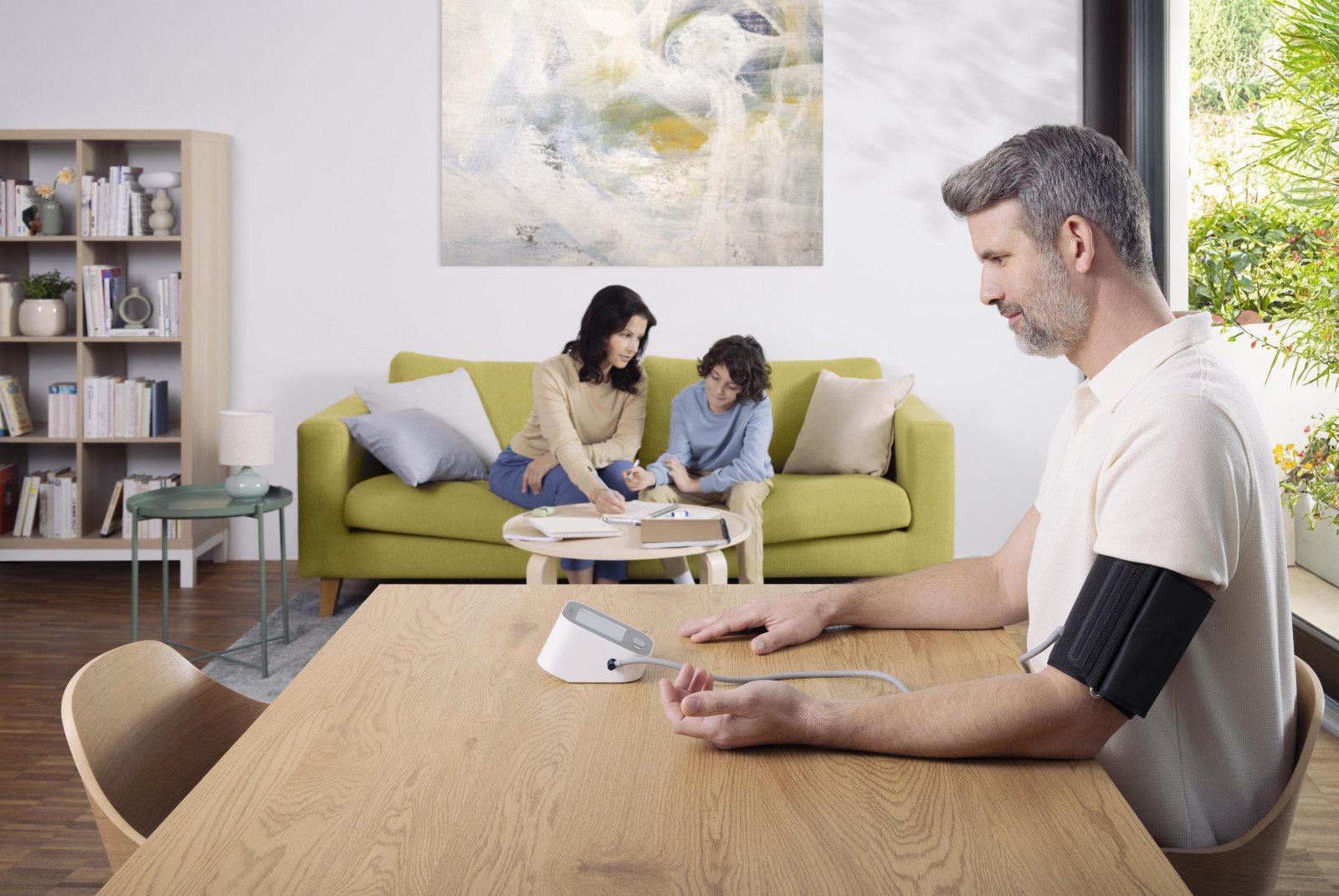Nocturnal Hypertension publications
Simultaneous self-monitoring comparison of a supine algorithm-equipped wrist nocturnal home blood pressure monitoring device with an upper arm device.
A nocturnal home blood pressure (BP) monitoring device that measures nighttime BP levels accurately with less sleep disturbance is needed for the 24-h management of hypertension. This is a first comparison study of simultaneous self-monitoring by both a supine position algorithm-equipped wrist nocturnal home BP monitoring device with a similar upper arm device in 50 hypertensive patients (mean age 68.9 ± 11.3 years).
The Role of Nocturnal Blood Pressure and Sleep Quality in Hypertension Management
Hypertension and the prevention of its associated cardiovascular risks, can be managed by an accurate measurement, prediction and treatment of high blood pressure during the day. However, nocturnal blood pressure can still increase the risk of fatal and non-fatal cardiovascular events. Nighttime blood pressure is usually evaluated with an ambulatory blood pressure monitoring device; however the availability is low and it can cause sleep disturbances. Home blood pressure monitoring can be an alternative and also more preferred by patients. The NightView is a new validated blood pressure device which offers the possibility to measure daytime and nightime blood pressure with minimal sleep disturbance.
Isolated Nocturnal Hypertension: What Do We Know and What Can We Do?
Blood pressure monitoring and studies have increased the awareness of nocturnal hypertension and its influence on target organ damage. Nocturnal hypertension is associated with an inadequate drop of even an increase in blood pressure at night compared to daytime blood pressure. Investigations have concluded that inadequate drop or reverse dipping is a predictor of cardiovascular events independently of circadian blood pressure patterns. This paper discusses the mechanisms, diagnosis and treatment of nocturnal hypertension and why the timing of drug administration plays a crucial role in reducing nighttime blood pressure.
Validation of a wrist-type home nocturnal blood pressure monitor in the sitting and supine position according to the ANSI/AAMI/ISO81060-2:2013 guidelines: Omron HEM-9601T
Several studies have reported that night-time ambulatory blood pressure (ABPM), which is the nocturnal blood pressure (BP)obtained by a conventional arm-cuff BP monitoring system at fixed intervals (eg, every 30 minutes), is a stronger predictor of cardiovascular events and prognosis of hypertension than either daytime ABPM or office BP. This study aimed to validate the accuracy of the Omron HEM-9601T, an automatic wrist-type device for self-blood pressure (BP) measurement with a timer function for automatic measurement of nocturnal BP, in the sitting position according to the American National Standards Institute/Association for the Advancement of Medical Instrumentation/International Organization for Standardization (ANSI/AAMI/ISO) 81060-2:2013 guidelines, and to assess its performance in the supine position by applying the same protocol as conducted in the sitting position.
Wrist devices with both accuracy and feasibility, new option to measure nocturnal blood pressure?
This is a commentary article on the validation paper of NightView.
Many clinical studies have investigated the epidemiology and therapeutics to control nocturnal blood pressure. However, there are limitations in data gathering to apply to clinical trials. The paper describes the difficulties in generating clinical evidence for real-world clinical practice. The author also discusses the recent clinical validation of the OMRON HEM-960IT and why this is a promising tool to measure nocturnal blood pressure in clinical research and practice.
Prevalence of isolated nocturnal hypertension according to 2018 European Society of Cardiology and European Society of Hypertension office blood pressure categories
Isolated nocturnal hypertension is a specific subtype of nocturnal hypertension which is characterized by elevated blood pressure at night with normal daytime blood pressure. Individuals with isolated nocturnal hypertension may experience more arterial stiffness, cardiac damage, and a higher risk of cardiovascular events and death. A recent study also showed that this condition could be an early manifestation of hypertensive disease. This paper studies the prevalence of isolated nocturnal hypertension and its relationship with office blood pressure categories defined by 2018 European Society of Cardiology and European Society of Hypertension (ESC/ESH) guidelines.
